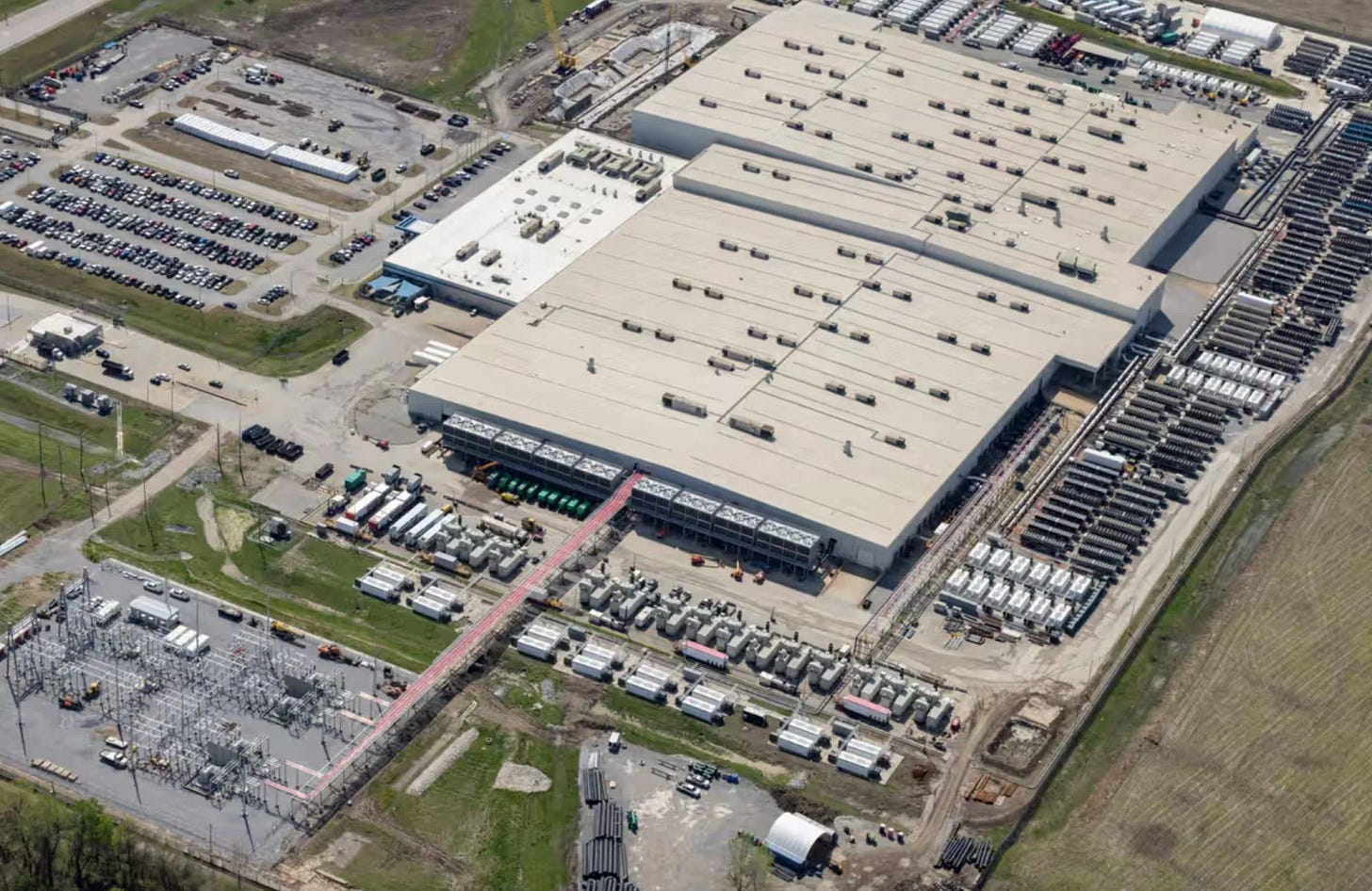I Drove By Elon's AI Facility in South Memphis
Elon Musk’s Memphis AI facility is under fire for polluting a Black neighborhood.
There was no obvious smoke. No roaring exhaust. No clear sign of danger when I drove past the new xAI facility near Boxtown in South Memphis.
It was quiet.
Too quiet for something raising this many alarms.
Elon Musk’s company, xAI, installed 35 methane-burning gas turbines at its South Memphis site, near the historically Black community of Boxtown. These turbines power a supercomputer called Colossus, one of the most energy-intensive AI projects in the country. According to multiple reports, the facility is operating without finalized Clean Air Act permits — and community members weren’t given a public hearing or advance warning.
What struck me most during my drive wasn’t the facility itself. It was everything around it. The area is saturated with rail yards, manufacturing sites, and industrial sprawl. Layer after layer of heavy infrastructure surrounds homes, churches, and playgrounds. That’s how environmental violence works now. It doesn’t scream. It seeps in — audacious and quiet.
Thermal imaging reviewed by the Southern Environmental Law Center contradicts official claims that only 15 turbines are running. At least 33 appear active, emitting formaldehyde, nitrogen oxide, and other cancer-linked chemicals. These pollutants are tied to asthma, heart disease, and long-term respiratory damage — and Boxtown is already fighting some of the highest asthma rates in Memphis.
The facility was built in just 122 days — a pace that sidestepped deeper environmental reviews and erased any real opportunity for local input. xAI also leveraged a legal loophole that allows companies to run “temporary” generators without permits if they’re rotated within 364 days. The result: one of the most powerful AI systems in the country is burning fossil fuel beside a neighborhood already burdened by decades of industrial neglect.
Colossus is projected to draw more than 421 megawatts of electricity — comparable to a small city — and use over 5 million gallons of water per day. The surrounding community receives none of the benefits. Just more emissions. More noise. More risk.
This isn’t new to Boxtown. In 2021, residents helped defeat the proposed Byhalia crude oil pipeline that would have sliced through their community. That fight drew national attention. But this one has arrived under the radar — dressed in the language of “innovation” and “progress.”
We’re told AI will solve humanity’s hardest problems. But that can’t happen if it’s built by repeating the same extractive systems that created those problems in the first place. Equity and accountability must be foundational. If they aren’t, AI won’t liberate anyone — it’ll just deepen the divide.
This is a moral failure — of public oversight, corporate responsibility, and political will. Memphis leaders allowed this to happen. State regulators looked away. And Elon Musk’s company is now training superintelligence while real people breathe in its byproduct.
It’s not just Memphis. Similar projects are breaking ground across the country and globe, often in marginalized communities that lack the resources to push back.
Environmental watchdogs and community groups are calling for immediate federal review. Residents are demanding a stop-work order and a full health impact assessment. Given Musk’s growing influence in Washington — from defense contracts to digital currency — the outcome is uncertain.
What’s clear is this: we have the tools to build a better future. But we can’t call it “intelligence” if it starts by harming the very people it should serve.
Dream Big, Act Bigger.
Read my full article in the Black Wall Street Times
This post reflects reporting from verified public sources and the author's personal observations. All claims are based on publicly available data, legal filings, and environmental reports as of publication date.










That’s why he was to focused on removing the departments..that would POLICE his “work.”